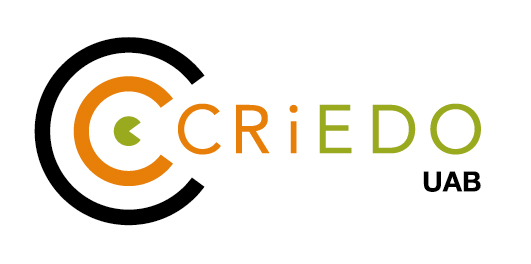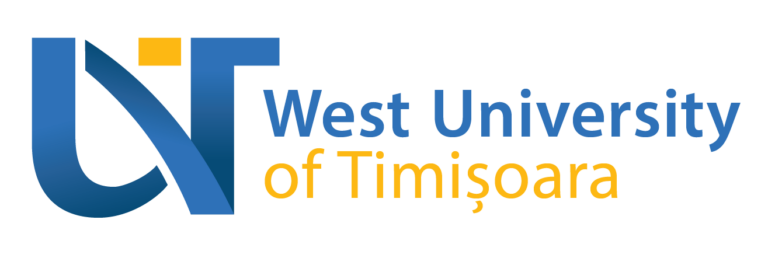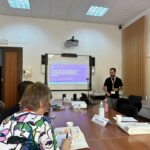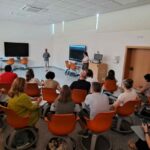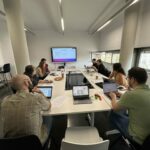Partners from 4 countries
Addressing school inclusion requires of a holistic and interdisciplinary approach, and our research consortium is formed by professionals from different area of knowledge and expertise and the transnational character of the project will provide an extremely useful knowledge since the four countries involved (ES; RO; NL; IC) must respond to similar challenges from four different systems of education and four different institutional frameworks and also the project will benefit from local expertise.
The project coordinator
CRiEDO- Universitat Autònoma de Barcelona (Spain)
The D-EvA project is led by the Center for Research and Studies for Organizational Development [CRiEDO] (http://edo.uab.es) from the Department of Applied Pedagogy, the Autonomous University of Barcelona (https://www.uab.cat/). CRiEDO is specialized in the analysis of training organizations, change processes and the design of strategies for organizational improvement. In recent years, CRiEDO has coordinated several projects (http://edo.uab.cat/es/content/projectes) linked to the analysis of situations of vulnerability in the context of secondary education and higher education.
STAFF PARTICIPATING IN THE PROJECT:
Dr. Georgeta Ion (project coordinator)
Dr. Cristina Mercader Juan (project coordinator)
Dr. Aleix Barrera Corominas (project manager)
Ms. Laia Alguacil
Dr. Victor López Simó
Mr. Andy Morodo Horillo
Dr. Ingrid Noguera Fructuoso
Ms. Alexandra Vicente Bueno
InterCultural Iceland (ICI) is a non-profit company which develops innovative educational initiatives and offers a broad spectrum of multi-disciplinary expertise and training activities. Founded in Reykjavík Iceland, 2003, ICI has become an important research and training center at national and EU and EEA level.
ICI is staffed by three paid staff members including the owner and manager. One who is predominantly engaged on admin and finance and two fully engaged in training, research and project activities.
ICI has an international reputation for excellence in training for trainers and teachers. Key areas of action are: Intercultural education, cooperative learning in multicultural groups (CLIM), anti-racist and sensitization training against prejudice and discrimination, diversity in social, teaching, learning and assessment contexts.
In 2012 ICI received a “Quality Course Provision for Grundtvig IST” for a sensitisation training course that has been offered in Iceland since 2004. All ICI courses have been rated as 5 star (from 5) on the school Education Gateway.
Currently ICI offer training courses in Iceland and these training courses are consistently fully booked in advance. In addition to the scheduled training courses, ICI also have accepted invitations to hold training outside Iceland for teachers and others targeted toward specific issues or demographics within our area of expertise.
In addition, ICI plays a key role in intercultural education and teacher training locally, especially for its experience in cooperative learning, the CLIM methodology, and active, creative and diverse teaching methods.
Workplace training has also been undertaken by ICI on a regular basis for example with the City Council, Police and trade unions particularly in the areas of diversity and anti racism.
STAFF PARTICIPATING IN THE PROJECT:
Ms. Guðrún Pétursdóttir
Ms. Cherry Hopton
Amsterdam University of Applied Sciences - Digital Society School (the Netherlands)
Amsterdam University of Applied Sciences (AUAS) students are immersed in Amsterdam during their studies. This bustling cosmopolitan city, and capital of the Netherlands, is home to people from 180 nations and English is widely spoken. Amsterdam is an international business hub, renowned as a hotbed of education and research in all conceivable areas: culture and society, trade, logistics, aviation, shipping, information technology, sports, healthcare and more.
With the city as their classroom, our students and lecturers work closely with countless industries, companies and organizations to come up with smart solutions to challenges facing our city. The University consists of seven faculties with a total of 45,797 students. AUAS is one of the biggest employers in the field of higher education, and in Amsterdam, with some 4,077 staff members.
Through the Digital Society School, we seek to research the impact of technology on society, develop the skills necessary to guide the transformation and pass on this knowledge and these skills to a new generation of professionals. They are ready to begin work on the United Nations Sustainable Development Goals for 2030. They will be the architects of transformation, across the world as well as in your organization.
STAFF PARTICIPATING IN THE PROJECT:
Dr. Dimitrios Vlachopoulos
Ms. Asia Trzeciak
Ms. Wai Feersma
Dr. Jeroen Van Wijck
West University of Timisoara (Romania)
STAFF PARTICIPATING IN THE PROJECT:
Dr. Lidia Simona-Sava
Dr. Laura Malita
Dr. Gabriela Grosseck

